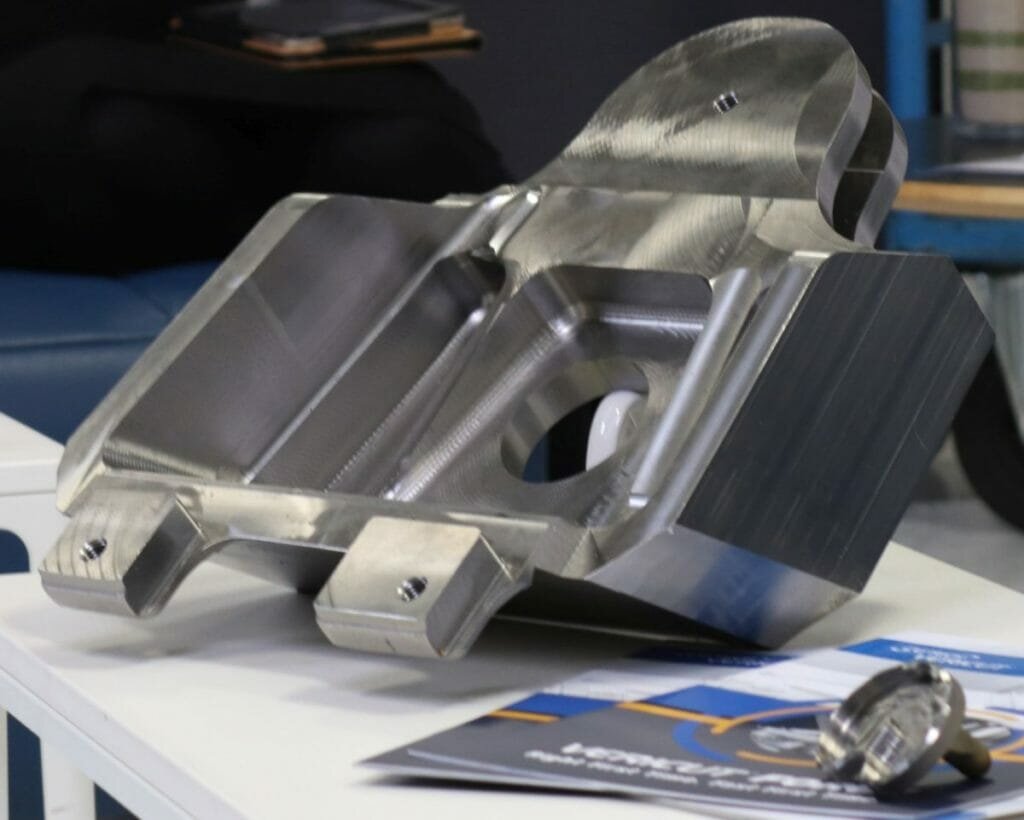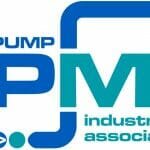A collaborative partnership between cutting tool technologies specialist, SECO Tools, and the world’s leading independent CNC simulation and optimisation software provider, CGTech, is harnessing exceptional results for even the most demanding of customers.
For a number of years, SECO Tools has been hosting its Inspiration Through Innovation (ITI) event at its impressive Innovation Hub in Alcester. Up until the global pandemic it had been a physical ‘open house’ event highlighting the cutting tool specialist’s range of products and engineering application knowledge.
 David Magnall, Innovation Partnership Manager (pictured) recalls: “The ITI event started out as a traditional open house and we would invite other businesses, that we called partners, to exhibit at the event so visitors could glean as much information as possible from their attendance. At the time there was no true collaboration. However, we started to recognise that customers wanted more. As engineering departments have been whittled down and down, large businesses expect their suppliers to provide technical support.
David Magnall, Innovation Partnership Manager (pictured) recalls: “The ITI event started out as a traditional open house and we would invite other businesses, that we called partners, to exhibit at the event so visitors could glean as much information as possible from their attendance. At the time there was no true collaboration. However, we started to recognise that customers wanted more. As engineering departments have been whittled down and down, large businesses expect their suppliers to provide technical support.
“As a tooling supplier we can usually make an incremental change, but if we interact with other companies that are part of that manufacturing process, we can deliver improvements as a collective which is more of a holistic solution. For our event we started to engage partners to focus on actual customers issues and components. It allowed us to demonstrate what we and our partners believe to be best practice manufacturing solutions. From there the idea grew and we thought we do this once a year why can’t we do this every day?”
CGTech in partnership with SECO Tools can provide turnkey solutions for businesses looking for high efficiency gains. As David Magnall points out: “Customers are looking to take at least 40% and up to 60% or more out of the manufacturing process, in terms of cycle times and therefore cost, and we need partners to achieve this. These are partnerships where we sit down at the beginning of the year and say what we want to achieve together, what can we do that is pro-active rather than wait for projects to come in and highlight what we recognise in the market that needs to be addressed. We know ‘what is keeping you awake at night’, then we can take that pain away.”
SECO Tools has used VERICUT CNC verification and optimisation software for many years with an established track record for getting results. “We have always used VERICUT, not just in the UK, but globally. At our production sites, anything we are programming could not run without being proven in VERICUT first. The use of the software is pretty much a standard operating practise, so we have worked closely with CGTech for a long time. For me, and many people in the company, VERICUT is the industry standard for CNC verification software,” David Magnall states.
Today’s collaborative approach builds on the history between the two businesses so they have created a method of providing more holistic process improvements for customers’ manufacturing operations. This was bolstered even further when the Force module within VERICUT, which uses a physics-based optimisation method to determine the maximum reliable feed rate for a given cutting condition based on four factors: force on the cutter, spindle power, maximum chip thickness, and maximum allowable feed rate, was introduced to the SECO engineering team, and David Magnall says: “It looked good on paper, as these things often do. Being engineers we thought we are going to have to give this a try. Some tests were set up and the CGTech staff were confident that what we saw on paper would be replicated, physically on the machine.
“So, we set up some material trials, we were gobsmacked, we did not expect the positive results we achieved and the more difficult the application or material, the greater savings we were seeing. And, it also addressed that paradox that you get from customers wanting a faster cycle time but not at the detriment of the tooling. No one wants the tooling to wear out quicker or the process to become less stable because you are running faster.
“However, the way the Force software works by evening out the peaks and troughs of the load on the cutting tool it gives us a much more stable cutting process that is kinder to the tool and the machine. It raises the bar on productivity because it balances out the load on the tooling so there is no detrimental effect to pushing it harder. That was the real eye-opener for us, in some cases we were getting better tool life, and a more constant load on the spindle achieving smoother machining cycles.”
With the capabilities of VERICUT Force now proven to the engineering team at SECO the partners thoughts turned to the real value of applying it to actual customer components. A forged 6Al-4V titanium aerospace component highlights the results as David Magnall explains: “We had already reduced the cycle time of the complex pylon bracket down to 4 hours, but just running it through Force reduced it down to 3 hours, which is just phenomenal. It’s not like we are just turning up the feedrate hoping that the process holds together, all the clever stuff is done in the Force software. By balancing out the load we are not seeing any decline in tool life, but we see an improvement on cycle time.”
These Force applied savings translate into other industry sectors. As well as aerospace, the SECO Innovation Hub in the UK also specialises in the medical sector. David Magnall points to a tibial tray, part of an implant used for Total Knee Arthroplasty, as an example of how Force can be used. The part is attached to the shinbone and supports the upper part of the implant. Typically, tibial trays are made from titanium, which exhibits higher tensile strength than the surrounding tibia bone.
“Now, if you just look at the numbers on the tibial tray,” he says, “you are only looking at a 15% saving. This equates to around 40 to 50 seconds, which may not sound a lot but if you look at one manufacturer that is often making between 600,000 and 700,000 tibial trays per year that represents a significant cost saving. Cycle time is critical to medical manufacturers, if they can shave 40 seconds off the process it could save a substantial amount of capital investment because of the capacity that the time saving buys back. Just on cost savings alone at a typical cost per hour for the industry you are looking at around £700,000 per year saved as well.”
Continuing, he adds: “Environmental sustainability is a huge topic within the manufacturing industry, and although people have talked about it for a long time there is now pressure to start making good and deliver. There are targets being set that people are working towards. Also, it’s not just the products, it is the whole manufacturing operation that needs to be more sustainable and more environmentally aware. We are certainly seeing it more and more with customers, they increasingly want to only do business with other companies that have some sort of sustainability plan in place. Using VERICUT Force results in savings that are many-fold. The cycle time reductions and tooling life increases are knowns. However, from a business improvement and sustainability point of view we should also consider the reduced power consumption from any machine tools running for less time and drawing less spindle power to cut the raw material. And increased shopfloor efficiency may negate the need to invest in further machine tools; making better use of what is available.”
Summing up the collaborative partnership, David Magnall says: “We have a great team at SECO, and our business model is always to try to provide a one stop shop. But we only have a finite resource and by partnering it helps us achieve the customers’ goals. The Force software does some really clever stuff and the support that we get from the CGTech team is second to none. If you are going to pick a company to work with as a partner these guys are it, they really are. They understand the collaborative approach as a pro-active way of working and addressing the issues faced by industry.”








